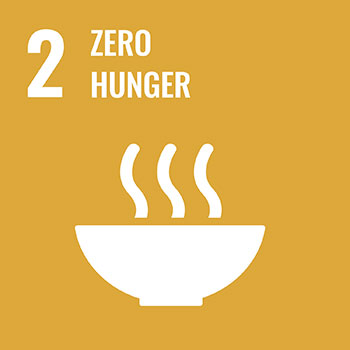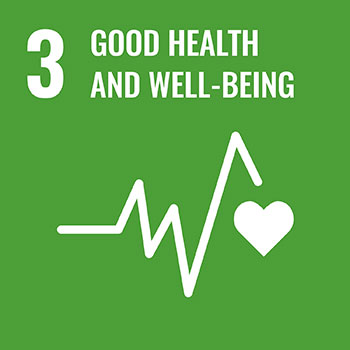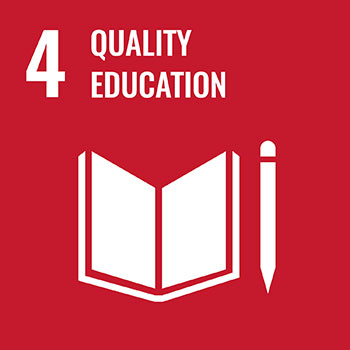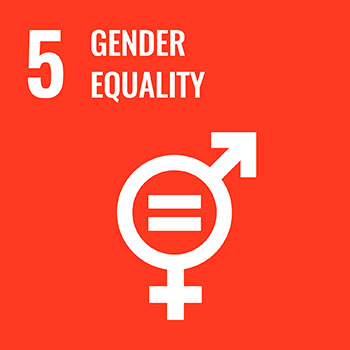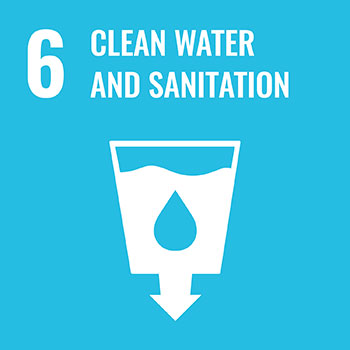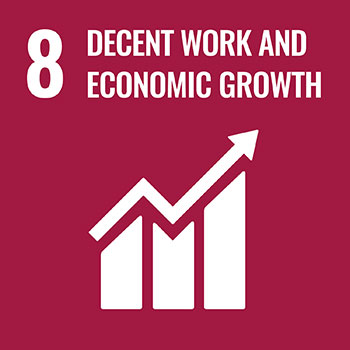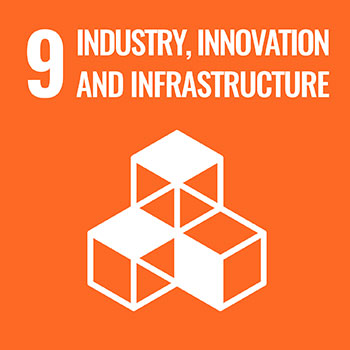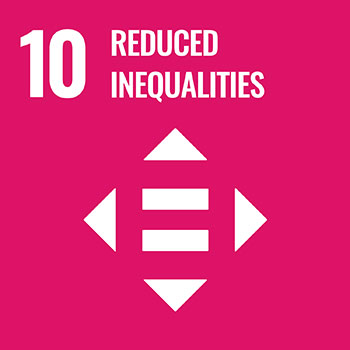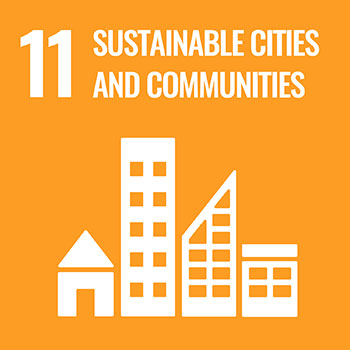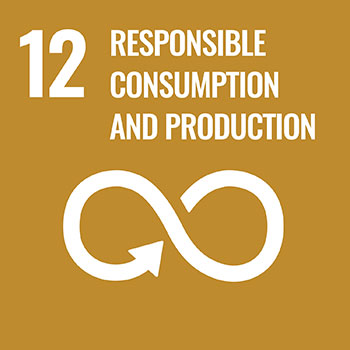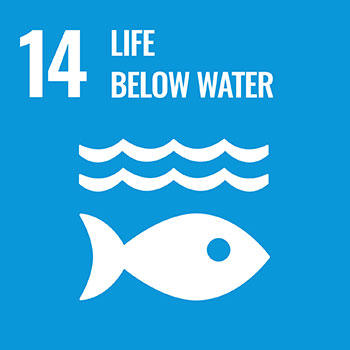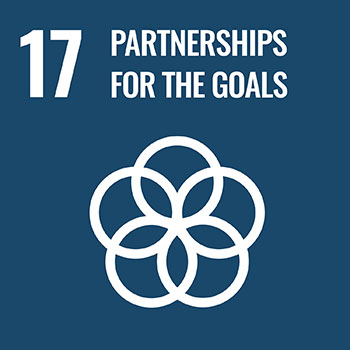Search for academic programs, residence, tours and events and more.
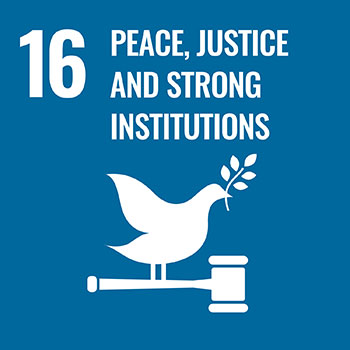
Promote peaceful and inclusive societies for sustainable development, provide access to justice for all, and build effective, accountable and inclusive institutions at all levels.
Wilfrid Laurier University's contributes to SDG 16 by fostering peace, justice, transparency and inclusivity on its campuses and within the broader global community. Through engaged work with government and non-governmental partners, Laurier is actively seeking ways to positively impact society.
The work that Laurier completed in 2023 to advance SDG 16.
TK Azaglo is living the advice he often provides: “Be the hope you want to see.” Through his organization, Future of Africa, the Laurier graduate is bringing hope to the lives of young people in his home country of Ghana.
The war in Ukraine is the bloodiest war in Europe since World War II, and rages on more than a year after Russia began its invasion. Reflecting on that recent milestone, Laurier’s Timothy Donais says the theme of the past year has been “Ukrainian resilience.”
“Peace, love and justice” is the title of an award-winning journal article co-authored by Sediqa Akbari and Rohina Zaffari, two Afghan academics participating in the Visiting Researcher – Scholars at Risk program at Laurier. These research themes are deeply personal for both women, who have persevered through armed conflict, persecution and forced migration to pursue their scholarship.
Under Siege explores the lives of Canadian Muslim youth belonging to the 9/11 generation as they navigate fraught times of global war and terror. Based on in-depth interviews with more than 130 young people, youth workers and community leaders, Zine’s ethnographic study unpacks the dynamics of Islamophobia as a system of oppression and examines its impact on Canadian Muslim youth. Under Siege was included on The Hill Times' list of the 100 Best Books in 2022.
Donais and Edgar, along with their co-editor Kirsten Van Houten, brought together a diverse range of peace and development scholars and practitioners to reflect on the progress made thus far toward SDG 16: promote just, peaceful and inclusive societies.
International Students Overcoming War (ISOW) hosted a keynote speech by Kim Phuc Phan Thi, known as “the girl in the picture” as the subject of one of the most haunting and iconic images of the Vietnam War. Kim Phuc shared a message of peace and hope at the start of a three-day, student-led international conference hosted by ISOW and the United Nations High Commissioner for Refugees.
Laurier's Department of Political Science hosted a lineup of political heavyweights for its 2023 Policy Dialogue. The event was moderated by renowned author and journalist Paul Wells. Wells guided a conversation between former federal cabinet minister Lisa Raitt; former chief of staff to former prime minister Stephen Harper Ian Brodie; and Sabreena Delhon, executive director of the Samara Centre for Democracy.
Laurier research centres advancing SDG 16.
The Tshepo Institute for the Study of Contemporary Africa (TISCA) is a university-wide research centre with active members across multiple faculties involved in Afrocentric research projects. TISCA’s vision is to provide scholars specializing in Africa with a platform and voice to produce and share timely interdisciplinary knowledge and discourse about issues affecting contemporary Continental Africa and its diaspora. TISCA’s mission is to promote global awareness and excellence in knowledge development on issues in contemporary Africa and the African diaspora in Canada and beyond.
The International Migration Research Centre (IMRC) serves as a node of excellence in scholarship and research, social and cultural debate, and policy formulation pertaining to international migration. The IMRC's mission is to create platforms for debate, research, policy analysis, community engagement and proposal development related to international migration and mobility at global, national, regional and local scales.
The United Nations Development Program provides a framework for defining “human security” as a freedom from fear, want, poverty and despair, and the work of the Centre for Research on Security Practices (CRSP) both engages and extends this definition. The centre does so by thinking through global and state-level practices of security and securitization that uphold structural forms of power and which, somewhat paradoxically, leave particular populations vulnerable. CRSP takes this tension as the heart of its work and the place through which a more fulsome and productive notion of security may be generated.
Laurier initiatives in 2023 that advanced SDG 16.
Laurier excels at creating a culture of community engagement. The Government and Community Relations team works with campus partners to identify and build enriching partnerships with community organizations and local, provincial and federal government officials.
Laurier’s Strategic Action Pan has four main focus areas, including ‘Enrich Community Engagement and Partnership.’ The plan outlines strategic actions the university is taking to increase external community engagement, including:
Our researchers are engaged in the communities of our home locations including Waterloo, Kitchener, Brantford, and Yellowknife. The following research centres/initiatives have strong community components:
Laurier helps organizations work with students and alumni through the following mechanisms:
There are many ways Laurier connects with alumni.
The Wilfrid Laurier University Act provides for broad representation on the Board of Governors to ensure that all members of the university community have a voice and input.
The Board of Governors has 34 members, including six members appointed by the Lieutenant Governor in Council of the Province, eight members from the community-at-large to represent a broad spectrum of the public, and three members appointed through the cities of Waterloo and Kitchener and Regional Municipality of Waterloo.
Under the Ontario Animals for Research Act, the Canadian Council of Animal Care Guidelines for the Care and Use of Experimental Animals, and Laurier’s Policy 11.5 Use of Animals in Research, Testing and Teaching, all researchers who will be conducting research, testing or teaching projects at Laurier involving the use of animals must obtain approval of the university's Animal Care Committee (ACC) before research can begin.
The ACC membership and representation consists of:
For more than 30 years, Laurier staff, faculty and retirees have banded together to support our communities through Brant United Way and United Way Waterloo Region. Laurier's partnership with United Way helps foster positive community relations, providing a big impact on individuals accessing these services.
Laurier faculty and staff support the community through the "Our Laurier" community campaign.
The Wilfrid Laurier University Act sets out the objects of the university as “the pursuit of learning through scholarship, teaching and research within a spirit of free enquiry and expression” (s.4).
Laurier is strongly committed to upholding free speech and free expression on its campuses. Our commitment is reflected in our founding documents and policies, and has been recently further articulated in our Statement on Freedom of Expression.
Laurier is committed to supporting policy and law-makers working in the realm of the SDGs. Examples of outreach, education and capacity building include:
Laurier is deeply committed to academic freedom, freedom of expression and fostering an inclusive environment where everyone is welcome to engage in research, teaching and learning. The university is proud to provide a neutral platform and "safe" space for individual with different viewpoints, including political, to come together to frankly discuss challenges. For example:
The Centre for Public Ethics at Martin Luther University College (federated with Laurier) promotes dialogue, research and education on the choices we make together in support of the public good. The Centre promotes dialogue, research and education public ethics which is about the life choices made to serve the common good — whether to serve our neighbours across the street or around the world. The Centre and its members engage in a number of activities including podcasting, events and the writing of op-eds as they related to public ethics.
The Balsillie School of International Affairs (BSIA) is an institute for advanced research, education, and outreach in the fields of global governance and international public policy. Founded in 2007 by philanthropist Jim Balsillie, the BSIA is an equal collaboration among the Centre for International Governance Innovation (CIGI), the University of Waterloo (UW), and Laurier. The School provides a platform for academics and students from diverse fields to come together around pressing global challenges, including conflict and security; environment and resources; global institutions; diplomacy and justice; global political economy; and migration, mobilities and social politics.
Discover how Laurier is contributing to United Nations Sustainable Development Goal targets.

